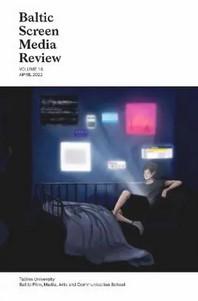The Mortgaged Miracle Social Stratification in Contemporary Estonian Cinema
The Mortgaged Miracle Social Stratification in Contemporary Estonian Cinema
Author(s): Dirk HoyerSubject(s): Labor relations, Culture and social structure , Film / Cinema / Cinematography, Socio-Economic Research, Sociology of Art
Published by: Tallinna Ülikooli Balti Filmi- ja Meediakool
Keywords: Social stratification; Contemporary Estonian cinema; inequality; social exclusion;
Summary/Abstract: According to recent OECD statistics, Estonia is the European Union country with the highest income inequalities. Among all the ex-Warsaw bloc states, the Baltic country also has the highest household debt. Despite these dire socio-economic indicators, Estonia’s path to economic development, the adaptation of the purest forms of neoliberalism to be found in Europe, is often hailed among economists. Former prime minister Mart Laar, one of the key architects of what was dubbed by some the Estonian Economic Miracle, admitted that his guideline for the post-Soviet economic reform (and the only book he read on economics) was Milton Friedman’s Free to Choose. How does inequality, social exclusion and growing social stratification manifest itself in Estonian contemporary cinema? The debut films of three directors, Vallo Toomla, Mihkel Ulk and Toomas Hussar, which all have a contemporary setting, address the neoliberal transformation process to various degrees. All three debut films are genre films: Mushrooming (Hussar, 2012) is a comedy, Zero Point (Ulk, 2014) a high-school drama and The Pretenders (Toomla, 2016) a thriller. None of the films directly addresses the social stratification of Estonian society. The films engage the subject with a low level of politicization, yet each of the films is a chronotope of the engagement of the film medium with society. Especially the question of individual responsibility to society, accountability for social exclusion and possible alternatives to neoliberalism are either addressed in an apprehensive way or, through their absence, deemed irrelevant. How did Friedman’s claim that economic freedom equals political freedom, that the market is the only effective tool and that self-interest is the only acceptable driving force in society affect the Estonian cinemascape?
Journal: Baltic Screen Media Review
- Issue Year: 2022
- Issue No: 10
- Page Range: 180-192
- Page Count: 13
- Language: English

